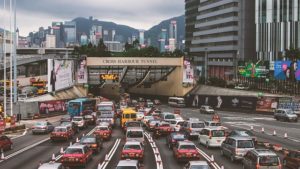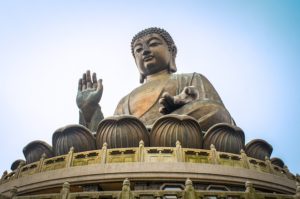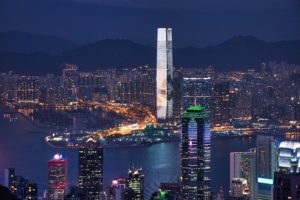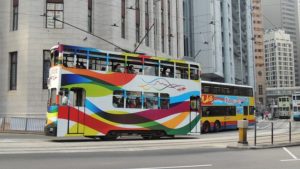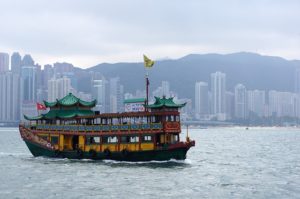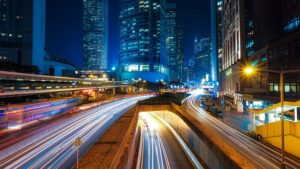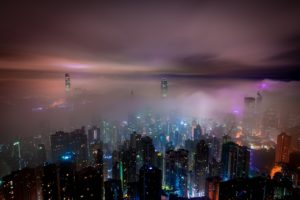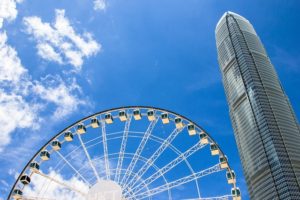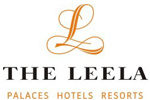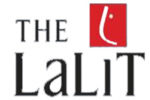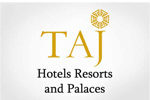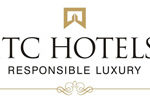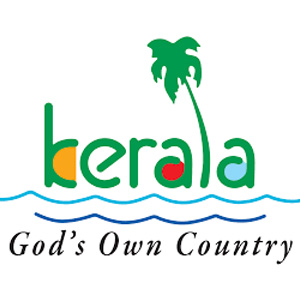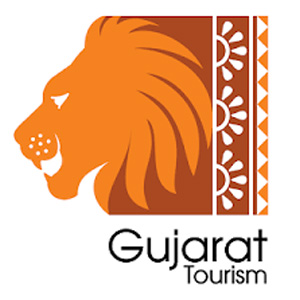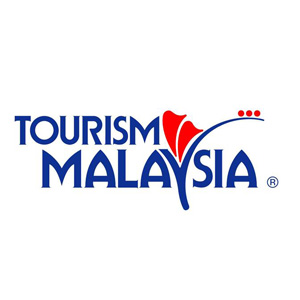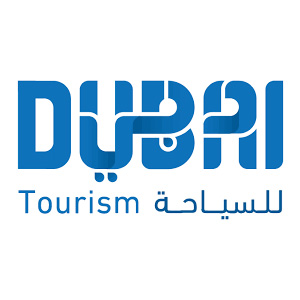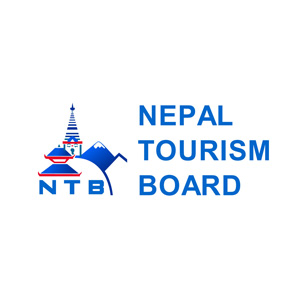




Hong Kong & Macau - Packages
Hong Kong & Macau
Currency:
Macau: Macau Pataca
Hong Kong: Hong Kong Dollar
Temperature:
Hong Kong:
Jan: 16
Feb: 17
Mar: 19
Apr: 23
May: 26
Jun: 28
Jul: 30
Aug: 29
Sep: 28
Oct: : 26
Nov: 22
Dec: 18
Macau:
Jan: 18
Feb: 14
Mar: 21
Apr: 25
May: 26
Jun: 29
Jul: 32
Aug: 29
Sep: 25
Oct: : 26
Nov: 22
Dec: 24
Flag:
Hong Kong
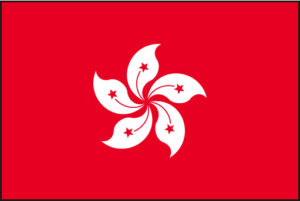
Macau
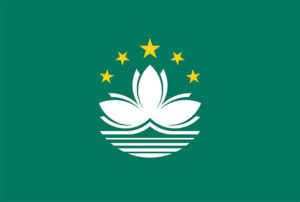
General Information:
Hong Kong: Hong Kong is a special administrative region of China. This recognition of Hong Kong came under the Sino-British Joint declaration. Hong Kong practices “One country, Two systems” principle. This means that Hong Kong has its own system which includes an independent legal system, judicial system, monetary system, customs policy, etc. But it also depends on China Defence and foreign affairs.
Hong Kong is one of the most visited cities in the world. It has an exceptional skyline. This well- developed land has a very good public transport system which is known to be the widest in the world. The Hong Kong International Airport is a very busy airport with flights from around the world arriving and departing. Ahmedabad, Bangalore, Delhi, Mumbai are well connected to Hong Kong via air.
Macau: Officially known as the Macau Special Administrative Region of the People’s Republic of China, Macau is self administered region. Like Hong Kong, Macau is also based on the principle “One country, two systems”. China is responsible for the military systems and foreign affairs, but Macau has its own legal and political systems. Macau is very developed and rich in terms of Human Development Index. It also welcomes tourists from around the globe throughout the year.
Macau has separate immigration system from China and Hong Kong. Flights from across the world land in the Macau International Airport. Flights from various cities of India also land in Macau on day to day basis.
Geography:
Hong Kong: The literally “fragrant harbour” has three territories namely Hong Kong island, Kowloon Peninsula and the New territories which includes land around the north of Kowloon ranges and south of the Sham Chun River. Hong Kong has 260 territorial islands facing the South China Sea.
The highest peak in Hong Kong is the Tai Mo Shan. The longest River in Hong Kong is Sham Chun River. The climate in Hong Kong is mostly monsoonal and the temperature doesn’t touch any extreme limits in Hong Kong. People visit Hong Kong throughout the year without any disturbance of the weather conditions.
Macau: Macau is a peninsula located on the banks of River Zhujiang and River Xijiang. It includes two islands in its territory namely Taipa and Coloane to which it is connected by the means of bridges. It shares a border with the Chinese city of Zhuhai.
It has a very flat terrain. The highest point is Coloane Alto which is located at the height of 172 kilometers. The climate is tropical and the seasons can touch some extremes. Summer is from May to September and can be really hot and humid, in winter is from November to February and the temperature can go as low as 5 °C and Macau can receive rains up to 2,120 millimeters from the month of March to April.
History And Culture:
Hong Kong: Evidences from history suggest that humans existed in Chep Lap Kok which is now in Hong Kong since 35000 to 39000 years. The land of Hong Kong was then known as the Kingdom of Nanyue which was conquered and ruled by the Qin dynasty for a short while. Later the Han Dynasty conquered this land and as time passed Hong Kong was allocated to the Jiaozhi commanders. Education was established under the Tang dynasty. The dynasty rule ended in Hong Kong with the Qing Dynasty which was also the last dynasty to rule China. The Qing dynasty was reluctant to trade opium to foreign countries and thus started the First Opium War. The two parties that were involved in this war were the British and the Qing dynasty. The Qing dynasty lost and eventually the British started colonizing these lands.
It did not take long for the Second Opium War to come along with the dispute between the British and the Qing dynasty. By the end of it, British colonies expanded. Hong Kong became a very vital port for trade and welcomed immigrants from several places.
The development of Hong Kong had started, but it was affected by severe racialism. Hong Kong remained peaceful during the First World War. But in 1937, the Sino-Japanese War broke out leading Japan to establish and further expand its territory in China. During the Second World War, the Japanese army attacked Hong Kong and the British army surrendered the land. This happened on 25th December 1941 and thus that day is known as the “Black Christmas” in Hong Kong.
The Japanese rule proved to be extremely atrocious to the people of Hong Kong. People died of starvation and inhuman slavery acts. Other atrocious acts like the St. Stephen College Massacre left scares on the history of Hong Kong during the rule of the Japanese. On 30th August 1945, the British overtook control again. Soon in the 1950s, communist rule had started being established in China. Hong Kong flourished under the governance of Sir Murray MacLehose. It is said that he had a key role in establishing Hong Kong as a “Global City”.
In 1984, after negotiations between China and the British governance, it was decided that Hong Kong would become a Special Administrative Region of People’s Republic of China.
Macau : Macau being a coastal area had fishermen, boat makers and refuges. Several dynasties ruled Macau, out of which the Qin Dynasty and Ming Dynasty were dominant. In the 16th century, the Portuguese came to Macau with a view to trade. They anchored their ships in Macau and soon got permission to build storage houses in Macau. To increase their stay, the Portuguese started paying heavy rent in form of silver.
Soon, the Chinese started looking at the Portuguese with contempt. In spite of problems, the Portuguese persisted in Macau. By the 1840s, the Portuguese succeeded in making Macau a self-administered land in order to continue efficient trade. The Dutch started making vain attempts to invade Macau and after the Battle of Macau, the Portuguese retaliated to these attacks and maintained their stay in Macau.
After the First Opium War, under the affect of the Sino-Portuguese Treaty of Peking, Macau became a Portuguese administered territory in 1887. During the Second World War, unlike other nations and territories who subdued to the rule of the Japanese, Macau remained neutral. The Japanese intruded on several occasions and also appointed advisors to the Portuguese for military purposes. Macau had to sustain the wrath of the fight between the US and Japan.
After the independence of China, in the wake of Cultural Revolution, riots broke out in Macau. The Portuguese took note of the event and apologized for the same. Later, Macau became “Chinese territory under Portugal administration” and talks about making Macau a special administrative region started. On 20th December 1999, the Portuguese withdrew and Macau was recognized as a “Special Administrative Region of the People’s Republic of China”.
Best Places To Visit:
Hong Kong:
1. Big Buddha
2. Disneyland
3. Avenue of Stars
4. Clock Tower
5. Victoria Harbour
6. Ocean Park
7. The Peak
8. Madame Tussauds Museum
9. Hong Kong Heritage Museum
Macau:
1. City of Dreams
2. Our Lady of Penha
3. AJ Hackett Macau Tower
4. Mandarin’s House
5. Historic Centre of Macau
6. Guia Lighthouse
7. Macau Giant Panda Pavilion
8. Macau Tower Convention & Entertainment Centre
9. MGM Casino
10. Ruins of St. Paul’s
What to do:
Hong Kong:
- Take a ride on a Tram
- Go on the top of the world
- Take a Star Ferry
- Go Shopping
- Cheer up for your favourite horses at the Happy Valley Racecourse
- Go on a Hike
- Visit the Ocean Park
- Look at the Spectacular Symphony of Lights
- Take a ride on the Arial Tramway
Macau:
- Ruins of St. Paul’s Cathedral
- Visit Macau Tower
- The Senado Square
- The cultural heritage of Macau
- The fishermen’s Wharf is a rare theme park
- Visit The Kun Iam Statue
- Visit Taipa are the Four Faced Buddhist Shrine
Best time to visit:
Hong Kong: Hong Kong is a year-round destination. However, summers are generally hot and humid, while winters are cool and dry. Here’s a monthly break up of Hong Kong’s climatic conditions so you can plan when to go:
March – April and October – November: These are the best times of the year to visit Hong Kong. The spring time (March – April) sees cool evenings. The months of October and November are agreeable too. Pleasant breezes, perfect amount of sunshine and moderate temperatures are some things which make autumn an ideal time to visit the Island.
May – September: This is the typhoon season in Hong Kong and thus not a preferred time to travel to the Island. June to August is when the city tends to get very hot, wet and humid. The temperatures go beyond 31°C and the high humidity levels make it difficult for anyone to indulge in any outdoor activities.
December – February: Hong Kong is the coldest between December and February. It remains dry and cloudy during this time and the temperatures can drop below 10°C. Also, many shops remain closed during the Chinese New Year (mid-January to February, dates change annually).
Macau: Macau climate from April to October is rainy. May is the rainiest and July to September is the typhoon season. Autumn and winter, especially mid-October to December, are recommended as the best visit times.
Map Hong Kong:
Map Macau:
Hong Kong & Macau Photos Gallery
Testimonials
Goa Tour
It was G8 experience to book the package of amezing GOA tour. They had given the best rate of the package & of very nice Resort.
Royal Rajashthan
It was very nice experianc booked Royal rajashthan tour. The provided full Facility, good room, food, serivice, what they committed befor booking. We satisfied with his tour, thanks for your Good Supports and service.
Panchgani Package
It was absolutely superb Hotle with nice services I got. Those people provided good hospitality including all aspects like room service, parking, good food quality and guide suggested who warmly showed all the locations in panchgini.
Rameshbhai Patelakshar tools
Goa Tour
It was G8 experience to book the package of amezing GOA tour. They had given the best rate of the package & of very nice Resort.
Royal Rajashthan
It was very nice experianc booked Royal rajashthan tour. The provided full Facility, good room, food, serivice, what they committed befor booking. We satisfied with his tour, thanks for your Good Supports and service.
Panchgani Package
It was absolutely superb Hotle with nice services I got. Those people provided good hospitality including all aspects like room service, parking, good food quality and guide suggested who warmly showed all the locations in panchgini.

